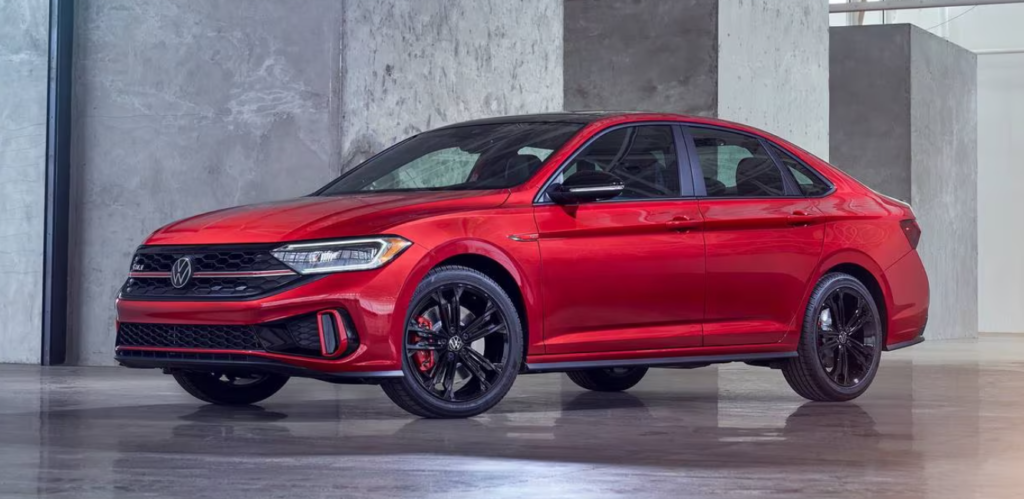The automobile world is replete with marvels of engineering, and among them stands the VW Jetta, a synthesis of design and innovation. Over the decades, it has graced the roads, carving its own niche among car enthusiasts.

The VW Jetta: A Legacy of Elegance and Engineering
From its inception, the VW Jetta has been synonymous with sophistication, blending German engineering with aesthetic appeal. This sedan, which has gained widespread popularity across various continents, owes much of its performance and fuel efficiency to its weight. The vw jetta weight is not just a number; it’s a testament to Volkswagen’s commitment to balancing safety, efficiency, and drivability.
Understanding VW Jetta Weight and Its Implications
VW Jetta weight has a direct influence on various performance metrics – from acceleration and handling to fuel efficiency and wear. By grasping the intricacies of the vw jetta weight, drivers can better understand their vehicle’s capabilities and limitations.
Evolution of the VW Jetta: A Weight Perspective
The Jetta, over its generational shifts, has seen significant alterations in design, technology, and yes, weight. Each iteration tells a story of the times and the evolving priorities of both the manufacturer and the consumer.
Understanding the VW Jetta’s Weight Evolution: Weight Changes Over the Years
First Generation (1979-1984): At its debut, the VW Jetta tipped the scales at around 930 kg. This might seem light by today’s standards, but for its time, this figure was a strategic blend of agility and substance. This initial model, birthed from Volkswagen’s vision, sought to provide drivers with a vehicle that was easy to handle due to its compact design, yet sturdy enough to withstand the rigors of everyday driving. The design choices made during this period were reflective of the era’s motoring ethos—a time when simplicity met functionality.
Subsequent Generations: As the world changed, so did the expectations from automobiles. Cars were no longer just machines to get from point A to B; they became an extension of one’s lifestyle, identity, and, above all, a sanctuary of safety and comfort on the move. These evolving demands led to a gradual increase in the vw jetta weight over the years.
Safety took the driver’s seat during these times. The inclusion of advanced safety features such as airbags, anti-lock braking systems, reinforced steel frames, and crumple zones added to the weight. These additions, although increasing the vw jetta weight, were vital in ensuring the car met the growing safety standards and expectations of consumers.
Then came the technological revolution. Infotainment systems, advanced driver-assistance systems, and electronic modules began making their way into cars. These features, while enhancing the driving experience, also contributed to the vehicle’s weight. The Jetta wasn’t just a car anymore; it was a tech hub on wheels.
Additionally, as the world leaned towards a more luxurious driving experience, the Jetta adapted by incorporating plush seating, superior insulation, larger wheelbases for added cabin space, and other amenities. By the time we reached the sixth generation (2011-2018), the vw jetta weight had burgeoned to approximately 1,312 kg—a testament to its evolution from a basic commuter vehicle to a modern sedan packed with features.
In essence, while the vw jetta weight has seen significant increments over its generations, each added kilogram tells a story. A story of progress, of adapting to a changing world, and Volkswagen’s unwavering commitment to delivering an unparalleled driving experience.
Factors Influencing Weight Changes in Design
Several elements contributed to the weight fluctuations:
- Safety Mechanisms: Innovations like airbags, reinforced frames, and advanced braking systems added weight.
- Infotainment Systems: Modern amenities, including touchscreens and sound systems, influenced the vw jetta weight.
- Material Choices: The move from predominantly steel bodies to incorporating aluminum and other lightweight materials played its part.

The Technical Side of VW Jetta’s Weight
Let’s delve deeper into what weight means in automotive terms and how it applies to the VW Jetta.
Gross Vehicle Weight (GVW) Explained
GVW refers to the combined weight of the vehicle and its maximum allowable payload (including passengers and cargo). For a car like the Jetta, understanding the GVW is crucial for safety. For instance, if a VW Jetta has a GVW of 1,850 kg, it means that’s the utmost weight (vehicle + payload) it’s designed to handle safely.
Curb Weight vs. Payload Capacity
- Curb Weight: This is the vw jetta weight when it’s parked at the curb, without passengers or cargo, but with all fluids topped up. If a Jetta’s curb weight is 1,312 kg, that’s the weight of the vehicle alone.
- Payload Capacity: This is the difference between GVW and curb weight. Using the previous numbers, if the GVW is 1,850 kg and the curb weight is 1,312 kg, the payload capacity would be 538 kg. This indicates the maximum weight of passengers, cargo, and additional accessories the car can safely handle.
The vw jetta weight is a reflection of its engineering evolution, balancing performance with safety and luxury. As drivers, understanding this weight and its various components can lead to safer, more efficient, and more enjoyable driving experiences. The VW Jetta’s legacy continues, and its weight remains a pivotal part of its story.
How VW Jetta’s Weight Impacts Performance
A vehicle’s weight is directly proportional to its overall performance. This truth is evident when one delves into the intricate dynamics of the VW Jetta. Every kilogram added or shed plays a role in how this iconic sedan responds on the road.
Acceleration and Top Speed
The vw jetta weight has a direct correlation with its acceleration. A lighter vehicle generally accelerates faster than a heavier one because there’s less mass to move. For example, a Jetta weighing around 1,300 kg might achieve 0 to 60 mph in a brisker time compared to a model weighing 1,400 kg, all other factors being equal.
On the other hand, a slightly heavier vehicle might have a marginal advantage in top speed on long stretches due to added momentum, but the difference is often negligible in real-world scenarios.
Braking and Handling Dynamics
A car’s weight also impacts its braking capabilities. Heavier cars tend to have longer stopping distances. This is why it’s essential that as the vw jetta weight has increased over generations due to added features and safety mechanisms, the braking system has concurrently evolved to handle that added weight efficiently.
In terms of handling, a well-distributed weight ensures that the Jetta remains agile around corners, maintaining a stable center of gravity. This weight distribution is crucial in preventing oversteer or understeer scenarios.
VW Jetta’s Fuel Efficiency and Weight
Weight plays a pivotal role in determining a vehicle’s fuel efficiency. The relationship is quite straightforward – a lighter vehicle consumes less fuel.
The Relationship Between Weight and Mileage
As the vw jetta weight increases, more energy (fuel) is required to move it. Hence, a lighter Jetta will generally be more fuel-efficient than its heavier counterpart. This is especially noticeable in city driving where frequent stops and starts are the norms.
Comparing Jetta Models: Fuel Consumption Patterns
For instance, earlier Jetta models, being lighter, might have boasted a fuel efficiency of around 28 MPG in city driving. In contrast, a recent, slightly heavier model might register around 26 MPG under similar conditions. These numbers are hypothetical but showcase the impact of weight on fuel consumption.
Safety Implications Tied to the Jetta’s Weight
The vw jetta weight isn’t just about performance and efficiency; it’s intrinsically tied to safety as well.
How Weight Affects Crash Safety
Heavier vehicles tend to fare better in collisions due to the added momentum and structural integrity. That said, Volkswagen ensures that even as the Jetta’s weight has been optimized for performance and fuel efficiency, it doesn’t compromise on safety. Reinforced frames, advanced crumple zones, and other safety features ensure the Jetta remains robust in the face of accidents.
Weight’s Role in Stability and Maneuverability
A balanced weight distribution is vital for vehicle stability, especially at higher speeds or in tricky road conditions. The Jetta’s weight is distributed to prevent rollovers and offer superior maneuverability, ensuring driver confidence in diverse driving scenarios.

Materials and Construction: Keeping Jetta Lightweight Yet Strong
Volkswagen’s commitment to balancing the vw jetta weight with strength and durability is evident in its choice of materials and design ethos.
Advanced Materials Used in Modern VW Jettas
Modern Jettas incorporate materials like high-strength steel, aluminum, and even certain composites. These materials provide the strength required for safety and durability while ensuring the car remains as light as possible.
Structural Design Choices for Optimal Weight Balance
Beyond material choices, the Jetta’s design prioritizes weight balance. From the positioning of the engine to the layout of the cabin, every element is placed with an eye on optimal weight distribution. This ensures not just efficient performance but also stability and safety.
The vw jetta weight is a testament to Volkswagen’s dedication to offering drivers an optimal blend of performance, efficiency, and safety. Through meticulous design choices, material selection, and engineering marvels, the Jetta stands as a paragon of automotive excellence.
Environmental Impact of Vehicle Weight
Every component of a vehicle, including its weight, has environmental implications. The vw jetta weight is no exception to this rule and plays a pivotal role in the car’s environmental footprint.
Emissions and the Weight Connection
Heavier vehicles generally consume more fuel due to the added energy required to move the increased mass. This directly translates to higher carbon dioxide (CO2) emissions. For instance, for every additional 100 kg in vw jetta weight, fuel consumption can increase by up to 2%, leading to a proportional increase in CO2 emissions.
VW’s Efforts to Minimize Carbon Footprint
Volkswagen has been proactive in its attempts to produce vehicles that are both efficient and environmentally friendly. By employing lightweight materials and engineering strategies, VW ensures that any increase in the vw jetta weight does not disproportionately affect its emissions. Moreover, Volkswagen’s push for electrification and hybrid technologies further solidifies its commitment to reducing carbon footprints.
The Role of Technology in Weight Management
In the modern automotive era, technology and weight are intertwined, influencing a vehicle’s overall performance and efficiency.
Onboard Systems that Optimize Performance
Advanced onboard systems in the VW Jetta actively monitor and adjust performance metrics based on the vw jetta weight. These include adaptive cruise control, dynamic chassis control, and even brake energy recuperation systems. By understanding the vehicle’s weight, these systems can optimize fuel efficiency, handling, and overall driving dynamics.
Future Innovations: Keeping the Jetta Efficient and Agile
As technology advances, cars like the Jetta will likely benefit from weight-saving innovations. From more efficient battery designs in hybrid models to the utilization of composite materials, the future holds immense potential to further optimize the vw jetta weight for performance and efficiency.
Weight Comparisons: VW Jetta vs. Competitors
The automotive market is fiercely competitive, and the vw jetta weight plays a role in how this iconic sedan compares to its rivals.
How Jetta Stands Against Rival Models
Let’s say, hypothetically, the VW Jetta weighs around 1,315 kg. In comparison, a competitor sedan might weigh 1,340 kg. Such differences, though seemingly small, can influence acceleration, fuel efficiency, and handling.
Weight as a Deciding Factor for Buyers
For discerning buyers, the vw jetta weight can be a decisive factor. A lighter car often translates to better fuel economy, agility, and potentially lower maintenance costs in the long run.
Summary
Throughout its evolution, the vw jetta weight has remained a focal point in its design and engineering. It represents Volkswagen’s commitment to marrying performance with efficiency. While weight plays a significant role in the Jetta’s performance metrics, VW ensures it never compromises on safety, creating a harmonious balance between agility and protection.
Frequently Asked Questions (FAQs)
How has the Jetta’s weight changed over various model years?
The Jetta’s weight has seen variations due to design changes, technological inclusions, and safety features. Earlier models were lighter, while recent ones might be heavier due to added features but come with improved efficiency.
Does the Jetta’s weight vary by trim or engine type?
Yes, different trims or engine types can influence the vw jetta weight, with sportier models or those with larger engines generally weighing more.
Are there modifications that can significantly change the Jetta’s weight?
Yes, additions like sunroofs, aftermarket alloy wheels, or heavy sound systems can influence the weight.
How does the Jetta’s weight influence its resale value?
While weight isn’t a primary factor in resale value, a well-maintained car with efficient performance metrics (which weight plays a role in) can fetch a better price.
Are there any weight-related recalls or concerns for the VW Jetta?
To date, there haven’t been significant recalls directly related to the vw jetta weight. However, it’s always a good idea to check the official VW website or local dealerships for the latest recall information.
Weight has always been, and will continue to be, a significant factor in automotive design and engineering. The VW Jetta is a testament to how effectively weight can be managed to produce a car that is efficient, safe, and a pleasure to drive.